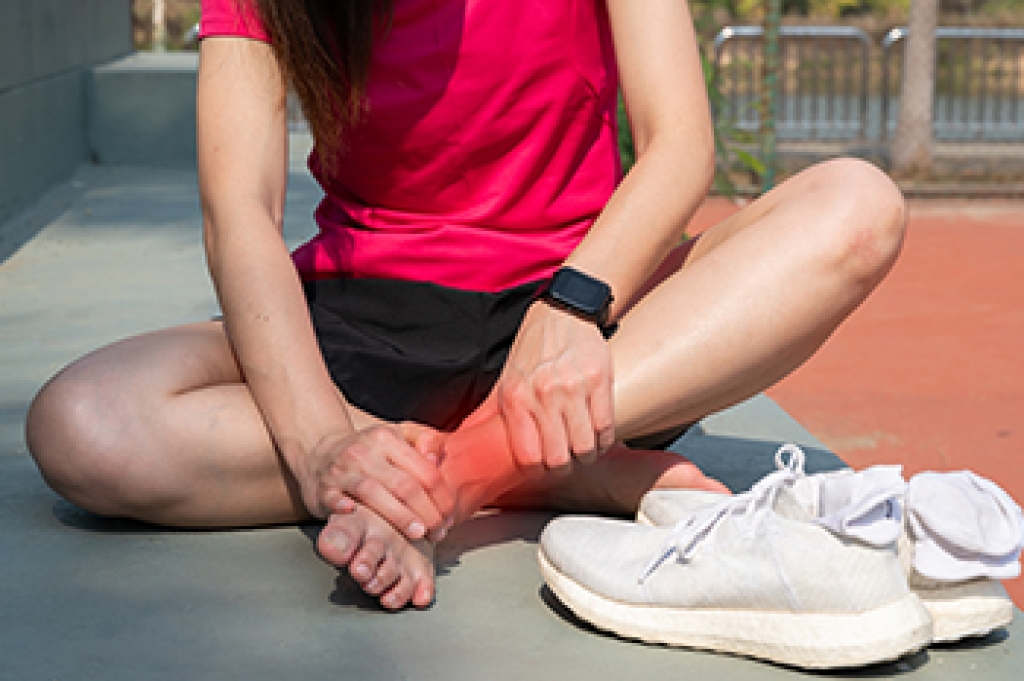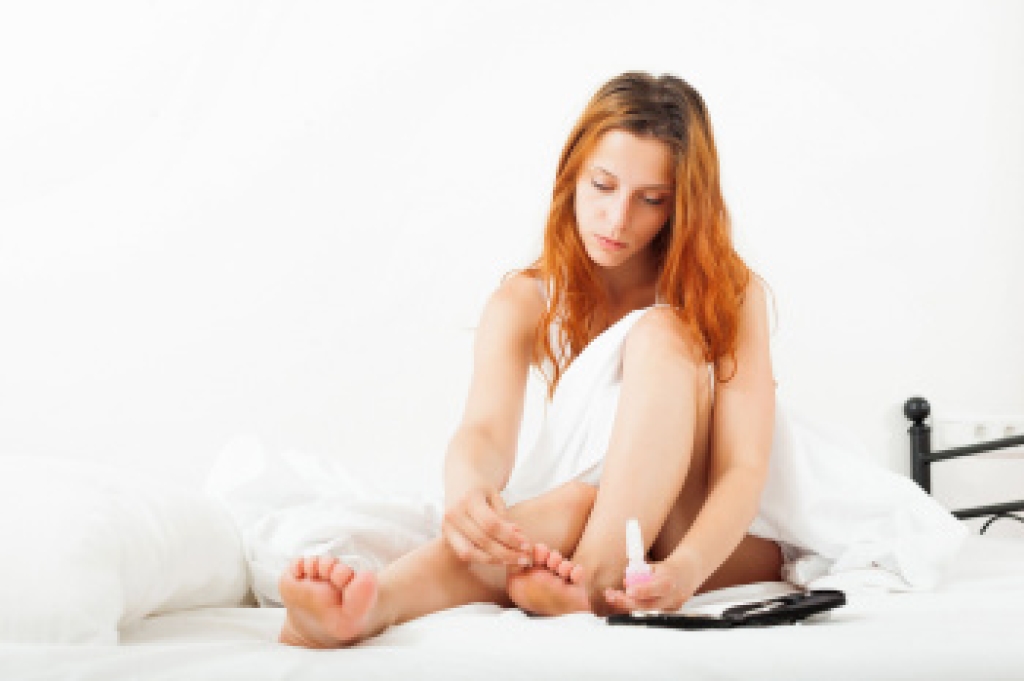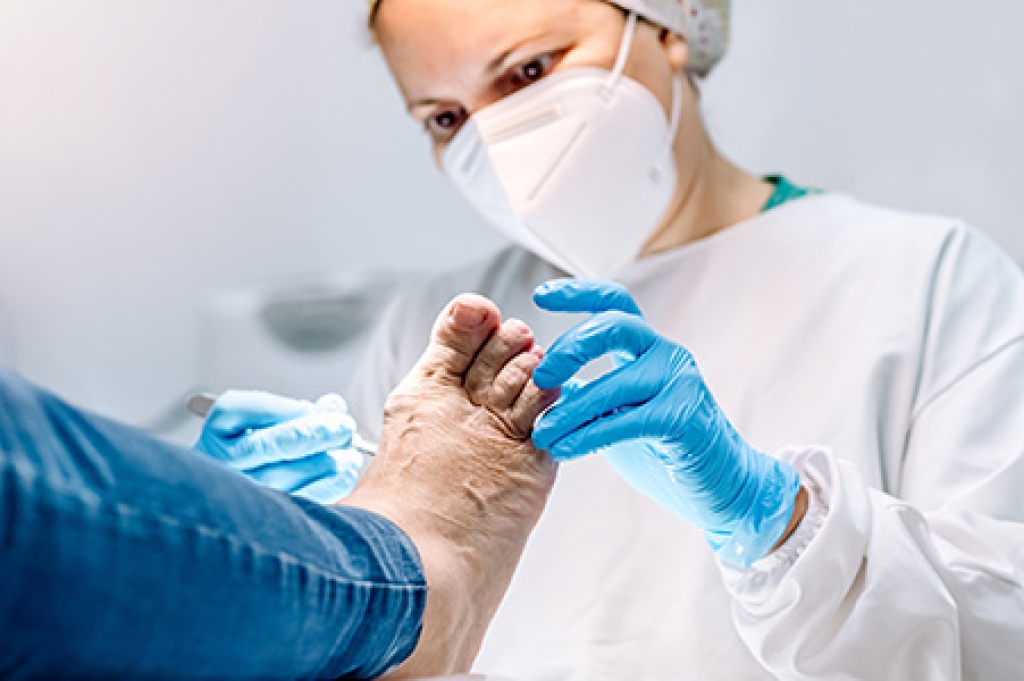Blog
Facts About High Ankle Sprains

A high ankle sprain is an injury to the ligaments that connect the two lower leg bones above the ankle joint. It often involves the syndesmosis, a joint where two bones are connected by strong ligaments rather than by a typical moving joint capsule. It occurs when the foot is forced outward or twisted while the leg remains stable, commonly during sports or sudden directional changes. Symptoms include significant pain above the ankle, swelling, bruising, discoloration, and difficulty bearing weight. A severe sprain may cause instability and prolonged discomfort if not properly treated. Diagnosis is made through physical examination and imaging studies to assess ligament damage. A podiatrist can provide an accurate diagnosis, recommend bracing or rehabilitation, and guide recovery. If you have sprained your ankle, it is suggested that you consult a podiatrist who can offer effective relief and treatment solutions.
Ankle sprains are common but need immediate attention. If you need your feet checked, contact Dr. Paul Drucker from NYC Foot Care, PC. Our doctor can provide the care you need to keep you pain-free and on your feet.
How Does an Ankle Sprain Occur?
Ankle sprains take place when the ligaments in your ankle are torn or stretched beyond their limits. There are multiple ways that the ankle can become injured, including twisting or rolling over onto your ankle, putting undue stress on it, or causing trauma to the ankle itself.
What Are the Symptoms?
- Mild to moderate bruising
- Limited mobility
- Swelling
- Discoloration of the skin (depending on severity)
Preventing a Sprain
- Wearing appropriate shoes for the occasion
- Stretching before exercises and sports
- Knowing your limits
Treatment of a Sprain
Treatment of a sprain depends on the severity. Many times, people are told to rest and remain off their feet completely, while others are given an air cast. If the sprain is very severe, surgery may be required.
If you have suffered an ankle sprain previously, you may want to consider additional support such as a brace and regular exercises to strengthen the ankle.
If you have any questions please feel free to contact our offices located in 70th Street Manhattan, 60th Street Manhattan, Jamaica, Queens, Plainview, NY and Fair Lawn, NJ . We offer the newest diagnostic tools and technology to treat your foot and ankle needs.
Toenail Fungus Discomfort and Mental Well-Being

Toenail fungus is often dismissed as a cosmetic problem, but it can affect both physical comfort and emotional health. Thickened, brittle, or discolored nails may press against shoes, leading to irritation and pain with walking or standing. This ongoing discomfort can interfere with daily routines and limit physical activity. Many people also feel embarrassed by the appearance of infected nails, which may lead them to avoid open-toed shoes or social situations. Feeling self-conscious over time can quietly affect confidence and overall mental well-being. When left untreated, toenail fungus may worsen, making nails harder to trim and increasing discomfort. Addressing the problem early can improve both foot comfort and peace of mind. If toenail changes are causing pain, frustration, or emotional stress, it is suggested that you see a podiatrist for an accurate diagnosis and appropriate treatment, which may include prescribed medication.
For more information about treatment, contact Dr. Paul Drucker of NYC Foot Care, PC. Our doctor can provide the care you need to keep you pain-free and on your feet.
Toenail Fungus Treatment
Toenail fungus is a condition that affects many people and can be especially hard to get rid of. Fortunately, there are several methods to go about treating and avoiding it.
Antifungals & Deterrence
Oral antifungal medicine has been shown to be effective in many cases. It is important to consult with a podiatrist to determine the proper regiment for you, or potentially explore other options.
Applying foot powder on the feet and shoes helps keep the feet free of moisture and sweat.
Sandals or open toed shoes – Wearing these will allow air movement and help keep feet dry. They also expose your feet to light, which fungus cannot tolerate. Socks with moisture wicking material also help as well.
If you have any questions please contact our offices located in 70th Street Manhattan, 60th Street Manhattan, Jamaica, Queens, Plainview, NY and Fair Lawn, NJ . We offer the newest diagnostic and treatment technologies for all your foot and ankle needs.
When to See a Podiatrist

Knowing when to see a podiatrist can help prevent minor foot concerns from progressing into more serious problems. Ongoing pain in the foot, toe, or ankle is a common reason to seek care, especially if it affects walking, standing, or daily activities. Changes in foot shape, recurring calluses or corns, nail disorders, heel discomfort, or swelling that does not improve should also be evaluated. Sports injuries, workplace strain, and age-related changes can place stress on bones, joints, tendons, and ligaments, leading to instability or limited movement. A podiatrist is medically trained to assess foot structure, identify underlying causes, and create an appropriate treatment plan. Options include footwear guidance, orthotics, targeted therapy, or other procedures depending on the problem. If you have foot, toe, or ankle problems, it is suggested that you make an appointment with a podiatrist for an exam, diagnosis, and treatment.
If you are dealing with pain in your feet and ankles, you may want to seek help from a podiatrist. Feel free to contact Dr. Paul Drucker from NYC Foot Care, PC. Our doctor can provide the care you need to keep you pain-free and on your feet.
What Is a Podiatrist?
A podiatrist is a doctor of podiatric medicine who diagnoses and treats conditions of the foot, ankle, and related structures of the leg. Your podiatrist may specialize in a certain field such as sports medicine, wound care, pediatrics, and diabetic care. Podiatrists have the ability to become board certified through training, clinical experience, and then taking an exam.
What Do Podiatrists Do?
On a daily basis, a podiatrist may perform the following activities:
- Diagnose foot ailments such as ulcers, tumors, fractures, etc.
- Use innovative methods to treat conditions
- Use corrective orthotics, casts, and strappings to correct deformities
- Correct walking patterns and balance
- Provide individual consultations to patients
It is very important that you take care of your feet. It’s easy to take having healthy feet for granted, however foot problems tend to be among the most common health conditions. Podiatrists can help diagnose and treat a variety of feet related conditions, so it is crucial that you visit one if you need assistance.
If you have any questions, please feel free to contact our offices located in 70th Street Manhattan, 60th Street Manhattan, Jamaica, Queens, Plainview, NY and Fair Lawn, NJ . We offer the newest diagnostic and treatment technologies for all your foot care needs.
Causes of Swollen Feet During Pregnancy

Swollen feet in pregnancy are very common and often occur when the body holds extra fluid and pressure increases on the veins in the legs. Hormonal changes, warm weather, and standing for long periods of time can make swelling worse and may lead to discomfort or a heavy feeling in the feet and ankles. Preventing swelling can include drinking plenty of water, staying active with gentle movement, and avoiding long periods of standing or sitting in one position. Wearing supportive shoes can also make a difference. A podiatrist can assess your feet, recommend safe ways to manage swelling, and provide guidance on footwear and orthotics that improve comfort. If swelling from pregnancy is affecting your daily routine, it is suggested that you schedule an appointment with a podiatrist who can offer effective relief tips.
Pregnant women with swollen feet can be treated with a variety of different methods that are readily available. For more information about other cures for swollen feet during pregnancy, consult with Dr. Paul Drucker from NYC Foot Care, PC. Our doctor will attend to all of your foot and ankle needs.
What Foot Problems Can Arise During Pregnancy?
One problem that can occur is overpronation, which occurs when the arch of the foot flattens and tends to roll inward. This can cause pain and discomfort in your heels while you’re walking or even just standing up, trying to support your baby.
Another problem is edema, or swelling in the extremities. This often affects the feet during pregnancy but tends to occur in the later stages.
How Can I Keep My Feet Healthy During Pregnancy?
- Wearing orthotics can provide extra support for the feet and help distribute weight evenly
- Minimize the amount of time spent walking barefoot
- Wear shoes with good arch support
- Wear shoes that allow for good circulation to the feet
- Elevate feet if you experience swelling
- Massage your feet
- Get regular, light exercise, such as walking, to promote blood circulation to the feet
If you have any questions, please feel free to contact our offices located in 70th Street Manhattan, 60th Street Manhattan, Jamaica, Queens, Plainview, NY and Fair Lawn, NJ . We offer the newest diagnostic and treatment technologies for all your foot care needs.

